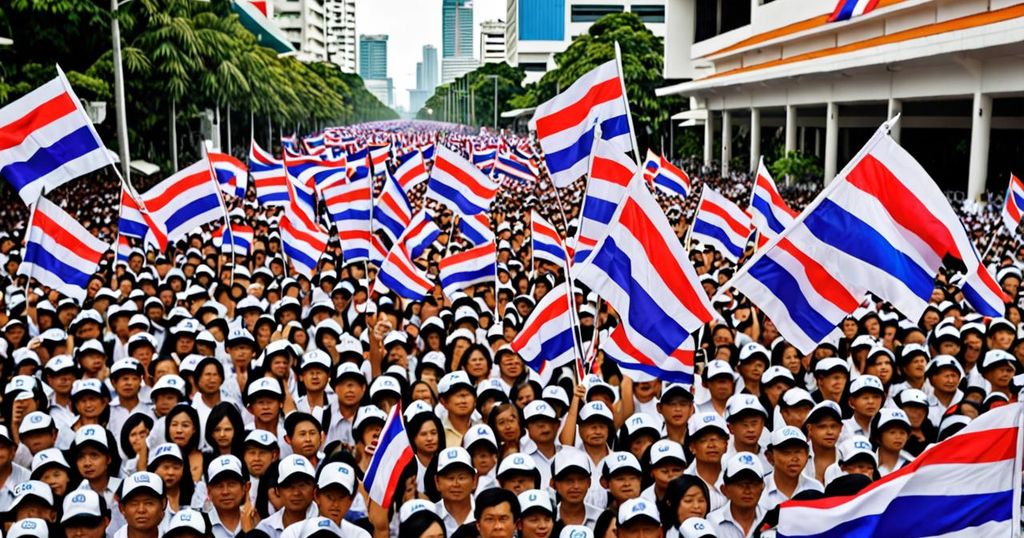The political landscape of Thailand has undergone significant changes in recent years. In the general election held in May 2023, the Move Forward Party (MFP) emerged as the leading party, raising hopes for progressive reform in the country. Despite their electoral success, the MFP was unable to form a government due to resistance from the conservative establishment. The party’s platform of reforming Article 112, the lese-majeste law, faced strong opposition and legal challenges, ultimately resulting in a cease and desist order from the Constitutional Court.
The court ruling has far-reaching implications for the future of the MFP, potentially leading to the banning of 44 party MPs from politics for a decade. This mirrors the fate of a member of the party’s predecessor, the Future Forward Party, following the 2019 general election. The swift and unanimous decision by the court has raised concerns about political interference and the future of opposition parties in Thailand.
The return of former Prime Minister Thaksin Shinawatra has added another layer of complexity to the situation. Thaksin’s reconciliation with his adversaries and his party’s resurgence signify a new chapter in Thai politics. However, the electoral landscape for the Puea Thai Party, with which Thaksin is associated, has proven challenging, indicating a shift in the country’s political dynamics.
Looking ahead, the future of the MFP remains uncertain, facing the possibility of being disbanded by the courts. However, the party’s influence and call for reform are unlikely to fade, and it may reemerge under a new guise in the lead-up to the next general election in 2027.
In conclusion, the political developments in Thailand reflect the complexities and challenges facing the country’s democratic system. The clash between progressive and conservative forces, combined with the resurgence of influential political figures, paints a turbulent picture of Thai politics.
About the Author
William J. Jones is an Assistant Professor with extensive experience in teaching international relations at Mahidol University International College, Thailand. His expertise in European Union diplomacy, ASEAN regionalism, and contemporary Thai politics has been widely recognized through his publications and media commentary. Currently pursuing a PhD on the ASEAN Intergovernmental Commission on Human Rights, Jones remains at the forefront of academic discourse on Southeast Asian politics.

Leave a Reply